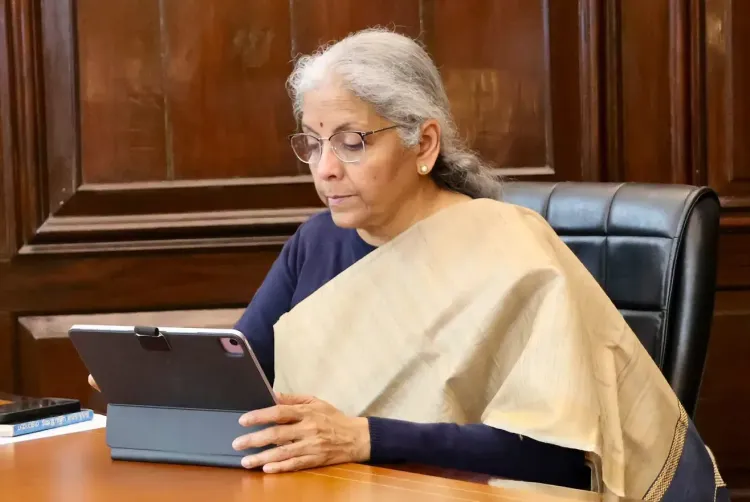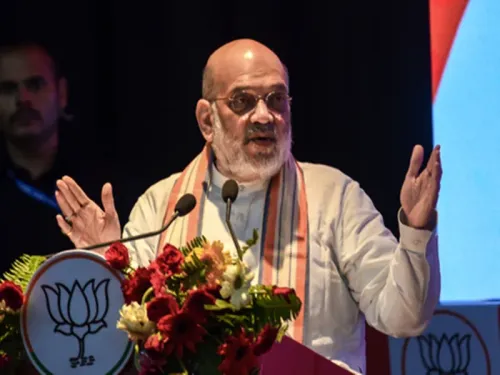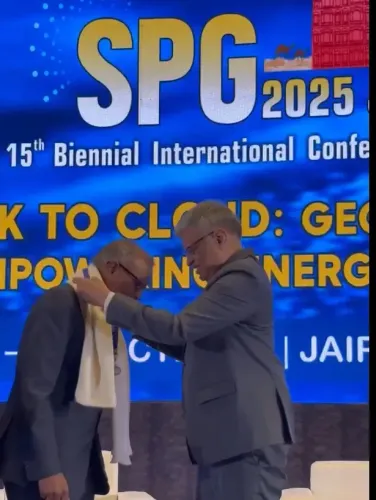Preparations Underway for FM Sitharaman's 2025-26 Budget Presentation Tomorrow

Synopsis
Key Takeaways
- Economic Survey paves the way for Budget 2025-26.
- Focus on rural development and financial inclusion.
- Anticipated rise in allocations for agriculture and rural sectors.
- Income tax rate reductions may benefit the middle class.
- Infrastructure investment crucial for fulfilling development goals.
New Delhi, Jan 31 (NationPress) The presentation of the Economic Survey on Friday has paved the way for Finance Minister Nirmala Sitharaman to unveil the Union Budget for 2025-26 in Parliament on Saturday (February 1). This budget is anticipated to further the government's agenda of propelling economic growth with an emphasis on equity.
According to the Economic Survey 2024-25, the government is focusing on enhancing the quality of life in rural regions to promote inclusive and equitable development.
The survey underscores the importance of financial inclusion, aiming to provide rural households and small enterprises with improved access to credit through microfinance institutions, self-help groups, and other intermediaries.
It outlines pivotal initiatives in areas such as infrastructure, rural housing, sanitation, clean fuel, social protection, and connectivity, alongside efforts to enhance rural livelihoods.
As a result, allocations for the agriculture and rural sectors are anticipated to rise in the Budget, in addition to welfare schemes aimed at uplifting the poor.
The Finance Minister is also likely to persist with the government's strategy of amplifying investments in major infrastructure projects to stimulate growth and generate employment opportunities in the economy for the 2025-26 Budget.
The Economic Survey has also emphasized the necessity for substantial investment in infrastructure over the next decade to meet India's developmental objectives. While estimates vary regarding the exact amount required, there is consensus that current infrastructure expenditure must escalate to fulfill these targets. In light of this, the government has emphasized infrastructure development over the past five years. Consequently, capital expenditure by the central government in key infrastructure sectors has surged at an average rate of 38.8 percent from FY20 to FY24, according to the survey.
There might be concessions for the middle class, which is hopeful for a reduction in income tax rates and an increase in the standard deduction. Under the traditional tax framework, the basic income exemption threshold is set at Rs 2.50 lakh, while for those opting for the new tax regime, it is fixed at Rs 3 lakh.
A decrease in the income tax burden would enable individuals to have more disposable income, stimulating demand and further propelling growth.
The economic survey has also pointed out that rising private consumption is significantly contributing to India's domestic economy's resilience in the face of global uncertainties.
Moreover, there may be adjustments to customs duties to rectify the inverted duty structure on certain products to bolster domestic manufacturing. These adjustments would likely involve increasing tariffs on finished goods while decreasing duties on inputs.
Following the release of the Economic Survey, India's Chief Economic Advisor V. Anantha Nageswaran mentioned on Friday that the nation will need to depend on domestic growth drivers as "the era of globalization, characterized by rapid and expansive trade and movement of goods and services, is behind us."
Finance Minister Sitharaman is scheduled to deliver the budget speech in the Lok Sabha at 11 a.m. on Saturday. The Budget Session of Parliament, which began on Friday, will be conducted in two phases - the first phase commenced on January 31 and will wrap up on February 13, while the second phase will start on March 10 and conclude on April 4.









